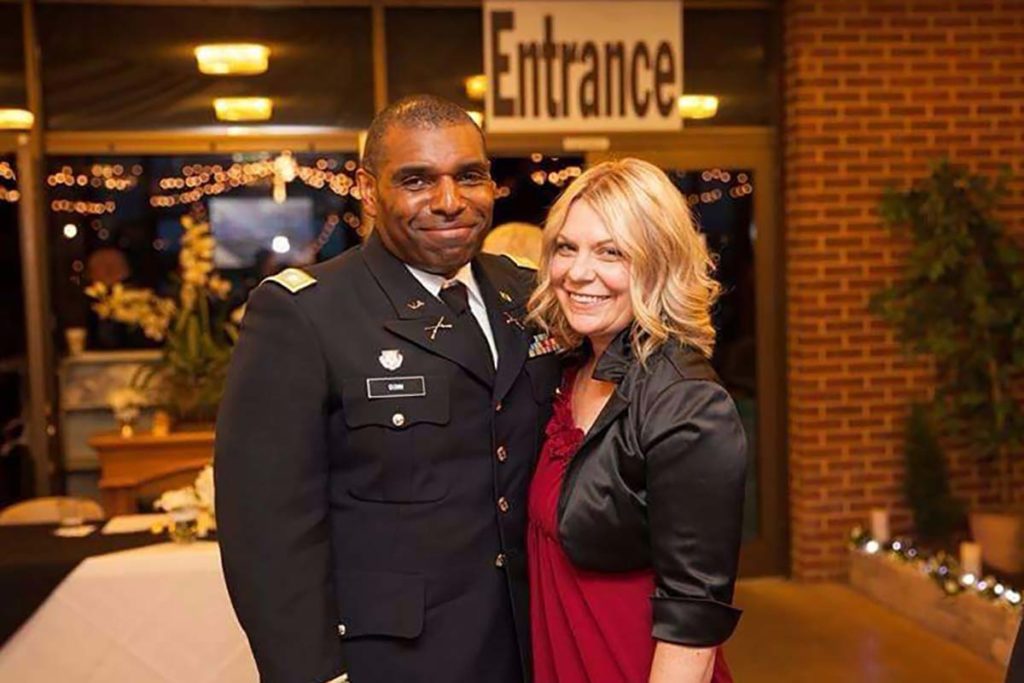Alec Gunn finished lunch and was heading to a grocery store near his home in Waynesboro, VA. Then the stomach pain hit.
After a CT scan and a colonoscopy, providers discovered that 46-year-old Alec had stage IV colon cancer.
“The news … my wife almost fainted,” he remembers. “I was a healthy person. I worked out all the time and watched what I ate.” And, with the exception of an aunt who he lost to lung cancer, there was no family history.
Alec’s primary care provider referred him to UVA colorectal surgeon Charles Friel, MD.
“When I met Alec, Alec was just a regular, healthy looking young man with no obvious things wrong with him,” says Friel. “And I think that’s the scary part about colon cancer sometimes. It can be growing inside of you, and you’re just not aware of what’s happening.”
Care Closer to Home
Friel and hepatobiliary surgeon Victor Zaydfudim, MD, presented Alec’s case at a conference of surgeons, oncologists, and radiologists. Friel explains, “We came up with a comprehensive plan that was unique for Alec’s situation. And we were able to work with our community provider, Nicholas Paphitis, MD, who is also a UVA affiliate, but closer to Alec’s home. We were able to provide him with some chemotherapy in an environment that was more comfortable for him right near his own home.”
After the six successful rounds of chemotherapy, Friel and Zayfudim were able to remove the cancerous parts of his liver and colon.
“Our expectation is that Alec will be cured,” beams Friel. “He’s completely free of disease at this point.”
COLON CANCER SCREENING
Colon cancer is the #2 cause of death from cancer in the U.S.
Get Screened at 45
Having cared for younger, healthy patients like Alec, Friel can’t stress enough the importance of early screening. “With regard to screening for colon cancer, what we now know is that colorectal cancer is actually increasing in our younger population. And because of that, the screening age has recently been decreased to age 45.”
Alec agrees. “Don’t let fear keep you from being screened. It could be found early. When it’s found early and detected early, your chance of survival are much higher.”
Watch Alec’s story.
Alec Gunn
I’m from Waynesboro, Virginia. That’s where I was born and raised. My father was in the military, in the army. So I followed in his footsteps and went to the army. I worked as Commandant of Cadets at Fishburne Military School for about six years. And during that time, that’s when I felt a strong call into counseling and chaplaincy. That’s where everything really begins.
Dr. Charles Friel
When I met Alec, Alec was just a regular, healthy-looking young man. And I think that’s the scary part about colon cancer sometimes is that it can be growing inside of you and you’re just not aware of what’s happening.
Alec Gunn
After I ate lunch, I started feeling like a pain in my stomach. I drove myself to the emergency room.
Dr. Charles Friel
His doctor referred him for a colonoscopy, at which point he was found to have a colon mass in his descending colon. He then had a CT scan, which demonstrated a mass in his liver as well, which was therefore consistent with stage 4 colon cancer.
Alec Gunn
The news, my wife almost fainted. Luckily, I had a family provider, and she said, “These doctors at UVA are going to do a great job with you. This is where I want you to go.” And so she squared that away. Dr. Friel and Dr. Zaydfudim, great guys, a blessing, a blessing to my family.
Dr. Charles Friel
We came up with a comprehensive plan that was unique for Alec’s situation. And we were able to work with our community provider, and we were able to provide him with some chemotherapy in an environment that was more comfortable for him, right near his own home. Anybody who has colon cancer always runs the risk of having a recurrent disease. And unfortunately, that risk is a bit higher with people with stage 4 disease. Nevertheless, we frequently cure people, and our expectation is that Alec will be cured. I’m happy to report, he just had a CAT scan just last month, and that he’s completely free of disease at this point.
Alec Gunn
I had to believe and I had to hope. Those were the things that got me through and have sustained me.
